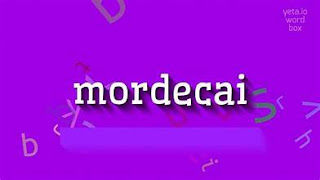By Sherri Stewart
For the last few months, I’ve been sharing stories of unsung heroes—people who’ve risked their lives for their Lord. But an interesting thing happened recently that made me set aside my plans: namely, Mordecai. I turned on the radio, and the DJ said Mordecai. I opened a book, and there was the name Mordecai. The day before, I read the word Mordecai in a blog the same moment as someone said the name on TV. So, for some reason, God wants me to write about Mordecai. Maybe one of you readers will know the reason why. Let me know.
At the time of the book of Esther, Ahasuerus was the king of Persia, commonly known as Xerxes, and he was seeking a new wife to replace Queen Vashti, who’d been deposed because she refused to appear at one of his drunken parties. Esther was beautiful in appearance and character, and she was taken to the king’s palace along with the other candidates. Xerxes would only choose one to be the queen. The others would be part of his harem, never being able to marry for the rest of their lives. Esther found favor with the king and was chosen to wear the crown.
So much of the book of Esther shows God’s providence, even though the name of God is never mentioned in the book. Mordecai overheard two of the king’s officers’ plan to assassinate the king, so Mordecai told Esther who told the king and averted the conspiracy. We learn from this that Mordecai was not afraid to do what’s right, even if it involved blessing his enemy. As a result of his courage, Mordecai’s name was written in the book of the Annuls, which would be important later.
From Herod to Hitler, history shows us how often one person’s hatred for the Jews can spread to the point that the whole race is in danger of being exterminated. For Mordecai, that person was Haman. Because Mordecai refused to bow to Haman, a nobleman, not only did Haman want to kill Mordecai, but he also wanted to exterminate every Jew that lived in Persia. Esther 3:13 says, “Dispatches were sent by couriers to all the king’s provinces with the order to destroy, kill and annihilate all the Jews—young and old, women and children—on a single day, the thirteenth day of the twelfth month, the month of Adar, and to plunder their goods.” Mordecai responded by wearing sackcloth and ashes, which got the attention of Esther. We learn here that Mordecai is passionate about his people, the Jews. He sent Esther a copy of the edict with the famous admonition: “For if you remain silent at this time, relief and deliverance for the Jews will arise from another place, but you and your father’s family will perish. And who knows but that you have come to your royal position for such a time as this?” In response Esther told Mordecai to ask all the Jews in Persia to fast and pray for three days, then she would tell the king who she was.
God answered. The king couldn’t sleep so he pulled out the Annuls and read about Mordecai’s thwarting of the assassination. This happened just before Haman was to meet with the king to tell him his plans to impale Mordecai. Instead, the king wanted to know what could be done to honor a person who delighted the king. Of course, Haman thought the king was talking about himself (ch.6). So not only did Haman end up honoring Mordecai despite his desire to kill him, but also, Haman was hanged on the seventy-foot pole he had erected to hang Mordecai on. Oh, the irony, or was it sweet justice?
King Ahasuerus reclaimed the signet ring he’d given to Haman and gave it to Mordecai. The king wrote a new edict that gave the Jews the legal right to exist like other human beings. “The king’s edict granted the Jews in every city the right to assemble and protect themselves; to destroy, kill and annihilate the armed men of any nationality or province who might attack them and their women and children, and to plunder the property of their enemies.” (Esther. 8:11)
It’s possible that Mordecai wrote the book of Esther because he recorded all the events (9:20), and who else would know what he’d said to Esther? He also proposed that all Jewish people remember what God did by celebrating Purim. The holiday of Purim is celebrated every year on the 14th of the Hebrew month of Adar (early spring). It commemorates the divinely orchestrated salvation of the Jewish people in the ancient Persian empire from Haman’s plot “to destroy, kill and annihilate all the Jews, young and old, infants and women, in a single day.” Literally “lots” in ancient Persian, Purim was thus named since Haman had thrown lots to determine when he would carry out his diabolical scheme. Mordecai presents us with a blueprint of how to live life in the midst of a hostile and unaccepting world.
Selah Award finalist Sherri Stewart loves a clean novel, sprinkled with romance and a strong message that challenges her faith. She spends her working hours with books—either editing others’ manuscripts or writing her own. Her passions are traveling to the settings of her books and sampling the food. She traveled to Paris for this book, and she works daily on her French and German although she doesn’t need to since everyone speaks English. A widow, Sherri lives in Orlando with her lazy dog, Lily. She shares recipes, tidbits of the book’s locations, and other authors' books in her newsletter.
Subscribe at http://eepurl.com/gZ-mv9
What Hides behind the Walls
If the Nazis stole your house, wouldn’t you be justified in stealing it back now that the war is over?
When
Tamar Feldman admits to her husband, Daniel, and mentor, Neelie Visser,
that she broke into her former home, they scold her for taking such a
risk. Tamar is tired of being careful. She’s tired of living in the
present, as if the past doesn’t matter. But the painting of the violin
girl in her former bedroom draws her back again and again. She finally
steals the painting to return it to its former owner. Now maybe this
small act of justice will help her start to heal. What Tamar doesn’t
realize is the past isn’t finished with her yet; in fact, it’s as close
as the walls in her house and even follows her to Paris.
https://amzn.to/3fxHAHo












Thanks for sharing , Sherri. Always enjoy hearing others insights on the Book of Esther.
ReplyDeleteAs do I. Thanks for your comment.
DeleteThank you for posting today. I love Esther and Mordecai's story.
ReplyDeleteIt has so many twists and coincidences!
DeleteThank you for this post and the great pictures - I love feeling a little like a kid in Sunday School!
ReplyDeleteI'm glad I could take you back to your early years.
DeleteSherri, your story about Mordecai and the hatred of the Jews across the millennia is so apropos in regards to what is happening in our contemporary world. Thank you for reminding all of us about God's faithfulness to His own.
ReplyDeleteI enjoyed reading your blog entry. I am reading Esther now in my morning Bible reading.
ReplyDelete